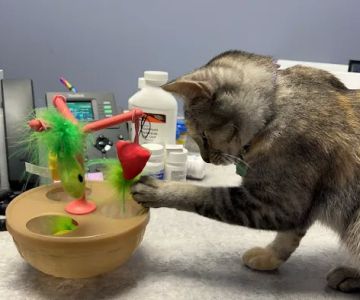Veterinary Services for Reptiles and Birds: A Comprehensive Guide
As an animal lover, I’ve always been fascinated by the diversity of pets that people keep. Among the most intriguing are reptiles and birds, both of which require specialized care. I’ve spent a lot of time learning about the unique needs of these creatures and discovering the importance of proper veterinary services. Veterinary care for reptiles and birds is different from that for mammals, and understanding these differences can ensure that these exotic pets lead healthy and happy lives.
1. Understanding the Unique Needs of Reptiles and Birds
Reptiles and birds have unique physiological systems, which require specialized veterinary care. Unlike dogs and cats, they do not always show signs of illness until their condition becomes quite severe. This makes regular checkups and early detection of problems essential. Reptiles, for example, are ectothermic, meaning they rely on external temperatures to regulate their body heat. Birds, on the other hand, have incredibly sensitive respiratory systems, and even a small change in their environment can cause them distress.
2. The Importance of Choosing a Specialized Veterinarian
Not all veterinarians are equipped to treat reptiles and birds. It’s crucial to find a veterinarian who specializes in exotic pets and has experience with these animals. An avian veterinarian or a reptile specialist will have the necessary knowledge to diagnose and treat conditions that are specific to these species. For example, a bird's beak and feather condition can be an indicator of serious illness, and a reptile's shedding patterns or shell condition may indicate a vitamin deficiency or parasite infection.
3. Common Health Issues in Reptiles and Birds
Just like other pets, reptiles and birds can suffer from a variety of health conditions. For reptiles, common issues include metabolic bone disease (especially in turtles and iguanas), respiratory infections, and parasitic infestations. Birds often face problems like feather plucking, respiratory infections, and egg-binding. A knowledgeable veterinarian will know how to treat these issues effectively, often through a combination of medication, dietary adjustments, and environmental changes. Early intervention can prevent more severe complications down the line.
4. Regular Checkups: How Often Do You Need to Visit the Vet?
Regular checkups are crucial for both reptiles and birds. While dogs and cats may need annual vaccinations and checkups, reptiles and birds require more frequent care depending on their species. For instance, a reptile may need a checkup every six months to ensure that its habitat is appropriately maintained (temperature, humidity, and UV light). Birds might need more frequent visits, particularly if they exhibit behavioral changes such as decreased activity or sudden weight loss. The vet will also provide crucial information about their diet and how to care for their unique needs at home.
5. The Role of Nutrition in the Health of Reptiles and Birds
Nutrition is one of the most important aspects of keeping reptiles and birds healthy. For reptiles, a balanced diet is key to avoiding metabolic disorders, and birds require a variety of seeds, fruits, and vegetables to maintain their plumage and overall well-being. An avian vet will be able to provide detailed advice on what to feed your bird or reptile based on their species and age. Overfeeding or feeding the wrong foods can lead to obesity, liver problems, or gastrointestinal issues.
6. Specialized Treatments for Birds and Reptiles
Sometimes, reptiles and birds may require specialized treatments that aren’t available at regular veterinary clinics. For example, birds may require beak or claw trimming, which is a delicate procedure that needs to be performed by an experienced veterinarian. Reptiles may need diagnostic procedures like radiographs or blood tests to diagnose internal issues such as parasites or kidney disease. Some veterinarians even specialize in reptile surgery, including repairing shell fractures or treating infections. These specialists use tailored treatments and equipment to ensure that these sensitive creatures get the best care possible.
If you have a reptile or bird at home, seeking veterinary services for these animals is an investment in their health and happiness. Regular vet visits, proper nutrition, and knowing when to seek help are all essential parts of pet ownership for exotic animals. For the best care, choose a veterinarian who specializes in reptiles or birds, and remember that prevention is always better than a cure.
For more advice on veterinary care for your exotic pets, or to find the right veterinary services near you, visit our website Hidden Brook Veterinary. We are dedicated to providing top-quality care for all types of animals, including reptiles and birds.











